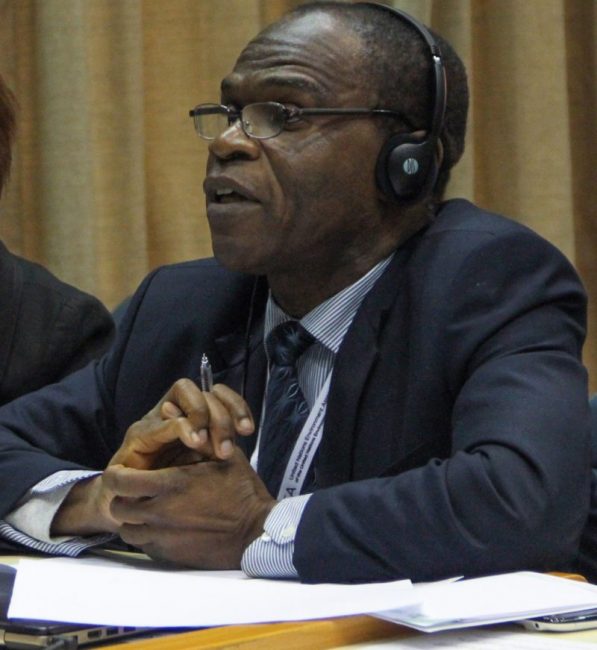By most accounts, Nigeria has been facing serious sanitation challenges, even after almost 60 years of political independence.

Sanitation experts moan that many cities and towns across the country are still having serious waste management problems, while some communities have yet to be free from the menace of open defecation.
They call for increased investments to rectify the situation but observe that the lack of a single entity with complete responsibility for sanitation within the government, as well as widespread corruption and lack of community support may, perhaps, hamper efforts.
The Nigerian Water and Sanitation Programme estimates that the Nigeria’s poor sanitation costs the country at least $3 billion each year, in terms of loss of productivity and health care expenditures.
However, Dr Lawrence Anukam, the Director-General of the National Environmental Standards and Regulations Enforcement Agency (NESREA), underscores the need to improve hygiene awareness, particularly in local communities across the country.
He says that improved sanitation is crucial in efforts to improve and protect the health and well-being of the citizens.
“Sanitation is a system that promotes disposal of human and animal wastes, as well as proper use of facilities such as toilet, bathroom and kitchen, among others, while avoiding open space defecation,’’ he says.
Anukam emphasises one of the strategies that can ensure effective environmental sanitation across the country is the implementation of the Integrated Solid Waste Management (ISWM) project.
He says that the ISWM project is a comprehensive waste management, recycling, compositing and disposal project, which will fast-track the sanitation of the environment, if properly managed.
He says that government is working assiduously towards implementing the ISWM project, which involves strong collaboration among various government agencies, non-governmental organisations (NGOs) and relevant international organisations.
Anukam stresses that poor sanitation could cause the development of terminal diseases and malnutrition through faecal contamination of food and water.
The director-general said that while these are immediate threats that require intense focus, sanitation essentially requires long-term investments that will help Nigeria to grow.
He calls on Nigerians to promote environmental sanitation to boost the country’s economic development and the health of its citizens.
Mr Williams Osaze, the President of Society for the Promotion of People’s Rights, an NGO, urges the government to collaborate with relevant national and international organisations in efforts to promote effective environmental sanitation.
According to him, if the government can partner with relevant stakeholders, such collaboration will promote environmental sanitation.
“Different views, ideas and contributions from such experts will improve the environmental sanitation in the country.
“Government can also work together with some of the international organisations in efforts to upgrade environmental sanitation in the country.
“The approach will go a long way to promote hygiene and sanitation in the country.
“Sustainability and implementation of environmental projects will also address the challenge of inefficiency of environmental sanitation programmes,’’ he says.
All the same, Mr Dominic Abonyi, Registrar, Environmental Health Registration Council of Nigeria (EHORECON), identifies hospital waste as another environmental challenge that could provoke the outbreak of serious diseases in neighbourhoods.
He advises the hospital management bodies to ensure that the wastes that are generated within the hospital premises are properly disposed of in ways that are devoid of potential health hazards.
Abonyi says that poor sanitation has wreaked a lot of havoc in several communities across the country, adding that relevant organisations ought to collaborate to tackle the menace of poor environmental sanitation.
Besides, Mr Yomi Awoniyi, Country Manager, Bio-Power Environmental Solutions Ltd., says that the construction of high-quality toilets with effective sanitation facilities will make the toilets sustainable, while supporting healthier environment in the society.
He stresses that the challenge of using toilet without adequate water to clean the toilets has been frustrating plans to attain good hygiene in neighbourhoods across the country.
He notes that most toilets are being operated without water, adding that the development could trigger the onset of diseases, while tainting the environment.
Awoniyi says his organisation is striving to address the problem by introducing a new Flush-Tech Sanitation System, whereby a fixed quantity of water is recycled through a process to ensure the availability of water in toilets at all times.
He says that Bio-Power Environmental Solutions Ltd. is also committed to creating strong community awareness on the importance of keeping the toilets and the surroundings tidy.
He says that the essence of the public awareness activity is to sensitise the people to the dangers of using dirty toilets and living in unhygienic environment.
“We are committed to advocating change and connecting the society to knowledge and experience so as to help people to build a better life,’’ he adds.
By Vivian Emoni, News Agency of Nigeria (NAN)
